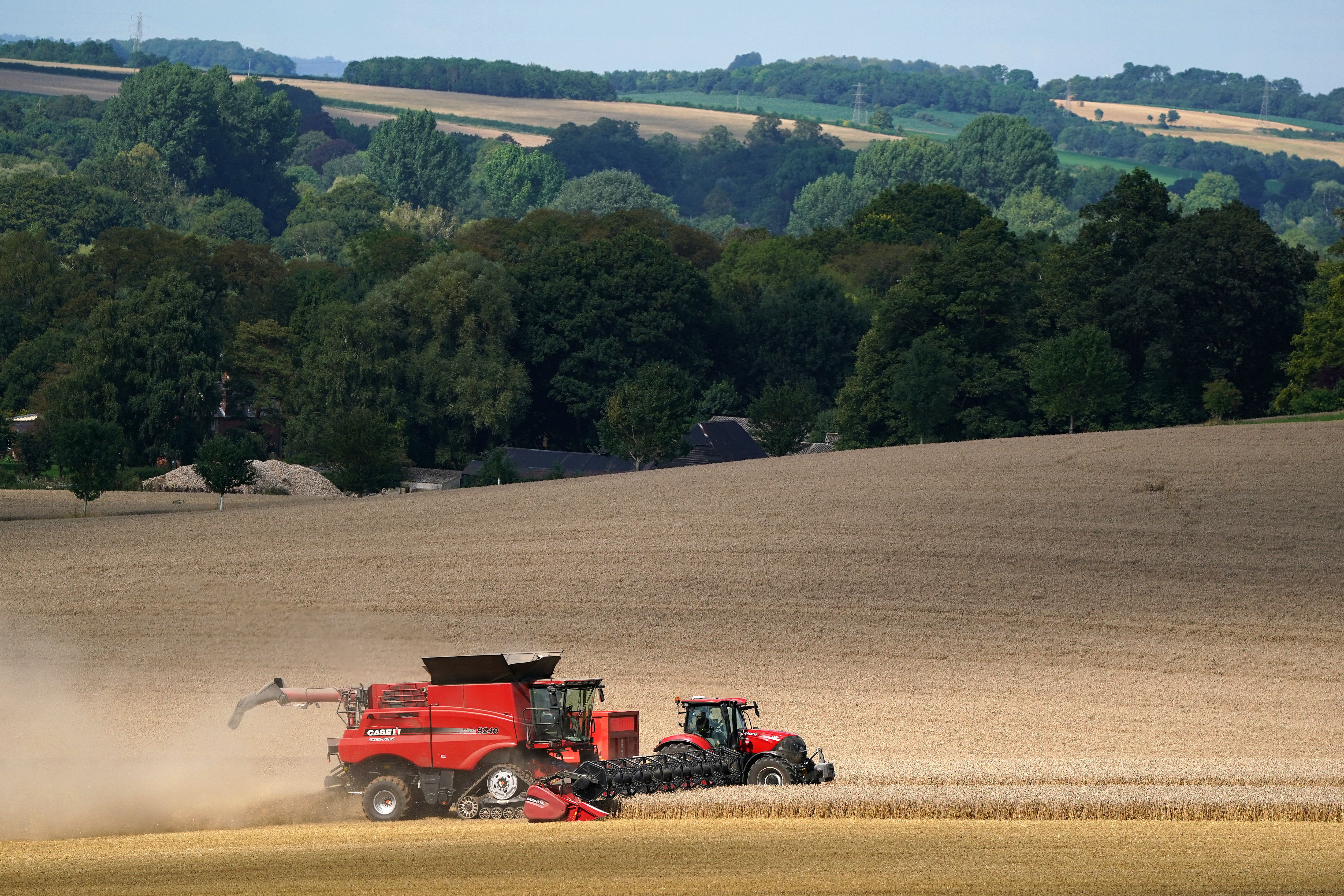Farm incomes plummeted by more than 50 per cent in just one year, official figures show, amid growing fears over the impact of the government’s “tractor tax”.
Average farm business incomes fell from £103,100 in 2022/23 to £45,300 in 2023/24, figures published by the Department for Environment, Food and Rural Affairs (Defra) show.
While the government said the fall in income “followed exceptional highs for some farm types in 2022/23”, in real terms, this is the lowest average farm incomes have been since 2015/16.
For cereal farms, business income fell by 73 per cent to £39,400 in 2023/24, something Defra said came as a result of “lower output prices and yields”.
For dairy farms, average business income was 68 per cent lower at £70,900, driven by a fall in the price of milk.
The latest figures come as thousands of farmers prepare to descend on London later this month in protest against the government’s extension of inheritance tax.

There has been a growing backlash from the farming community following the decision to extend the duty to cover agricultural properties, with National Farmers’ Union (NFU) chief Tom Bradshaw warning that the government should be prepared for a “militant” response from farmers.
The move, which has been dubbed the “tractor tax”, means farms worth more than £1m are now subject to 20 per cent inheritance tax.
Mr Bradshaw, described the new tax as “disastrous”, warning that British farmers are already “down to the bone and gristle”.
“This Budget not only threatens family farms but will also make producing food more expensive. This means more cost for farmers who simply cannot absorb it, and it will have to be borne by someone. Farmers are down to the bone and gristle,” he said. “Who is going to carry these costs?”
The row over the tax has been fuelled by memories of the prime minister’s 2023 speech to the NFU when he pledged to have “a new relationship with the countryside and farmers”.
Sir Keir Starmer claimed to be concerned that “each day brings a new existential risk” to British farming. He added: “Losing a farm is not like losing any other business, it can’t come back.”
Baroness Batters, Mr Bradshaw’s predecessor who introduced the PM at the conference last year, said the £1m threshold will easily be reached when land value is added to the value of machinery and buildings on farms, meaning most family farms will be subject to the new tax.
She said: “There was already a challenge in farming because of the move away from CAP [common agricultural policy] and the new subsidy system not really working.
“The problem is that farmers are asset rich but cash poor. So this will have an impact.”
The reaction has been compounded by confusion over how many farms will be affected by the changes to inheritance tax after figures showed her claims of one in four may be wide of the mark.
Defra figures suggest that up to two thirds (66 per cent) of farms could be hit by the tax grab which critics claim will destroy Britain’s family farms, while the Treasury has claimed just 28 per cent will be impacted.
Minister for Food and Rural Affairs, Daniel Zeichner said: “This government recognises food security is national security and our commitment to farmers remains steadfast.
“That is why we have committed £5bn to the farming budget over two years – more money than ever for sustainable food production, and to boost rural economic growth.
“We recognise that confidence amongst farmers is low following years of neglect and policy failure. We have set out significant support for the sector, including confirming that farmers affected by extreme wet weather will receive up to £60 million in farming recovery payments from next week.”







